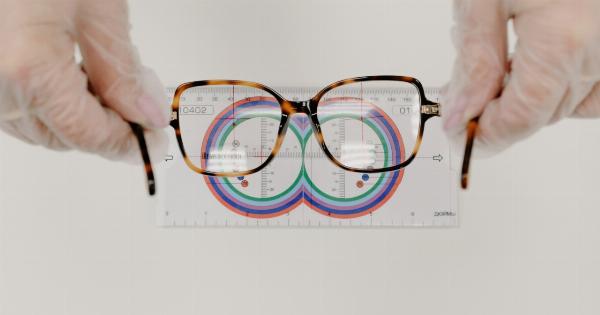An underfunded thyroid, also known as hypothyroidism, is a condition in which the thyroid gland does not produce enough hormones to meet the body’s needs. This can result in a variety of symptoms and health problems.
In this article, we will explore the effects of an underfunded thyroid and provide images that illustrate this condition.
The Thyroid Gland
Before we delve into the effects of an underfunded thyroid, it is important to understand the role of the thyroid gland in the body. The thyroid gland is a small, butterfly-shaped organ located in the neck.
It produces hormones that regulate various bodily functions, including metabolism, heart rate, temperature, and energy levels.
Causes of an Underfunded Thyroid
There are several causes of an underfunded thyroid, including:.
- Autoimmune disorders: The most common cause of hypothyroidism is an autoimmune disorder called Hashimoto’s thyroiditis. In this condition, the immune system mistakenly attacks the thyroid gland, causing inflammation and damage.
- Thyroid surgery or radiation therapy: If the thyroid gland is surgically removed or exposed to radiation, it can lead to an underactive thyroid.
- Iodine deficiency: The thyroid gland needs iodine to produce hormones. Lack of iodine in the diet can lead to an underfunded thyroid.
- Medications: Certain medications, such as lithium, can interfere with thyroid function and cause hypothyroidism.
Effects of an Underfunded Thyroid
When the thyroid gland is underfunded, it can result in a variety of symptoms and health problems, including:.
- Fatigue and weakness: Individuals with an underfunded thyroid often experience persistent tiredness and a lack of energy.
- Weight gain: Hypothyroidism can cause unexplained weight gain, even with decreased appetite.
- Depression and mental fog: Many people with an underfunded thyroid experience symptoms of depression, as well as difficulty concentrating and memory problems.
- Dry skin and hair: Thyroid hormones help regulate the moisture levels in the skin and hair. When the thyroid is underfunded, dryness and brittleness can occur.
- Cold intolerance: Individuals with an underfunded thyroid often feel cold, even in warm environments.
- Muscle pain and joint stiffness: Hypothyroidism can cause muscle aches, cramps, and joint stiffness.
- Menstrual irregularities: Women with an underfunded thyroid may experience heavier, more frequent, or prolonged menstrual periods.
- High cholesterol levels: An underfunded thyroid can lead to elevated cholesterol levels and an increased risk of heart disease.
- Goiter: In some cases, the thyroid gland may enlarge, resulting in a noticeable swelling in the neck called a goiter.
- Infertility and pregnancy complications: Hypothyroidism can affect fertility in both men and women, and if left untreated during pregnancy, it can increase the risk of miscarriage, premature birth, and developmental issues in the baby.
Images Illustrating an Underfunded Thyroid
Below are some images that illustrate the effects of an underfunded thyroid:.

Image 1: A person feeling fatigued and weak due to an underfunded thyroid.

Image 2: Illustration depicting weight gain caused by an underactive thyroid.

Image 3: A representation of depression and mental fog associated with hypothyroidism.

Image 4: Dry skin and brittle hair resulting from an underfunded thyroid.

Image 5: A person wrapped in a blanket, experiencing cold intolerance due to a hypothyroid condition.

Image 6: Joint stiffness and muscle pain caused by an underfunded thyroid.

Image 7: An illustration depicting menstrual irregularities associated with hypothyroidism.

Image 8: A representation of high cholesterol levels as a result of an underfunded thyroid.

Image 9: An enlarged thyroid gland, resulting in a visible goiter.

Image 10: Illustration portraying infertility and pregnancy complications associated with hypothyroidism.
Treatment and Management
An underfunded thyroid can be managed with medication that replaces the hormone deficiency. The most common treatment for hypothyroidism is synthetic thyroid hormone replacement medication, such as levothyroxine.
Regular monitoring of hormone levels is usually required to ensure that the dosage is adjusted correctly.
In addition to medication, adopting a healthy lifestyle can help manage the symptoms and improve overall well-being. This includes eating a balanced diet, exercising regularly, getting enough sleep, and managing stress levels.
Conclusion
An underfunded thyroid can have a significant impact on a person’s physical and mental health. Recognizing the symptoms and seeking appropriate medical care is crucial for managing this condition.
With proper treatment and lifestyle adjustments, individuals with hypothyroidism can lead fulfilling lives.





























